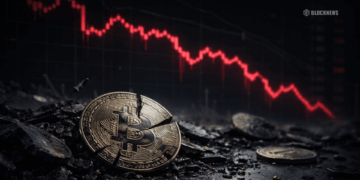In the latest battle between the crypto industry and regulators, top U.S. federal officers have again called concerned authorities to invoke stricter regulations on crypto finance activities.
Michael Barr, a top S. banking regulator at the Federal Reserve, has urged Congress to pass legislation regulating cryptocurrencies.
Barr took office in July and is scheduled to testify before Congress Tuesday for the first time as vice chair. While he did not mention the incident of FTX’s devastating collapse in his written remarks, his comments pointed in a glaring direction.
The crypto community has been in disarray following the fall of Sam Bankman Fried’s empire, the shockwave on other affiliated crypto exchanges and companies, and the losses investors incurred.
Cryptocurrency lender BlockFi paused client withdrawals Friday after FTX sought bankruptcy protection. Bitcoin fell from $20k a coin to $16.5k, its lowest value since 2020, shortly after the crisis, and other associated bodies with FTX have been asked to provide proof-of-reserves.
Financial analysts have predicted that the FTX would only lead to broader speculations about the credibility of the crypto industry.
“This crypto winter will go on a lot longer because of this…The fact is that traditional investments, like bonds, are becoming more attractive. This means crypto is less of a systemic threat,” Carol Alexander, professor of finance at the University of Sussex, stated.
“Novel Class Assets Need Strong Guardrails”
In a prepared statement released Monday, Barr said that the “recent events in crypto … have highlighted the risks to investors and consumers associated with new and novel asset classes and activities when not accompanied by strong guardrails.”
Despite its exciting nature, many still classify cryptocurrency as a novel asset. If recent events are anything to go by, the industry might still be regarded as new and unstable for much longer.
“…some financial innovations offer opportunities, but as we have recently seen, many innovations also carry risks.” Those include runs on deposits, collapsing asset values, misuse of customer funds, fraud, theft, manipulation, and money laundering,” Barr added.
“These risks, if not well controlled, can harm retail investors and cut against the goals of a safe and fair financial system, but recent events remind us of the potential for systemic risk if interlinkages develop between the cryptosystem that exists today and the traditional financial system,” he went on.
Barr said on Monday that the U.S. central bank was looking for any stresses to the financial system amid a weakening economy and signaled that stiffer oversight of cryptocurrency is in the making.
The Fed “will be heightening its focus on liquidity, credit, and interest-rate risks as supervised institutions manage the changing financial conditions,” his written testimony explained.
He stressed the negative influence of a weakened economy, citing that it would “put stress on households and businesses and, thus, on the banking system as a whole.”
Crypto Market to Be Subjected to Same Regulations as Traditional Finance
In an interview with Bloomberg on Monday, Federal Reserve Board Governor Lael Brainard reiterated her long-term view on the need for stronger regulations for crypto finance.
“It’s concerning to see that retail investors are getting hurt by these losses,” Brainard said, noting that the recent upheaval in the crypto market re-enforces the need for it to be appropriately regulated in the same manner as traditional finance.
Brainard’s views on cryptocurrency have been to hold it accountable to the same rules as traditional finance due to its similar risks.
“And it is also the case that despite a lot of hype…you heard a lot about how decentralized these markets are…it turns out they are highly concentrated, highly interconnected, you are just seeing a domino effect, failures from one platform spilling over into elsewhere,” Brainard continued.
“It reinforces, I think, this need to make sure that crypto finance because it is no different than traditional finance in the risks that it exposes, needs to be under the regulatory perimeter.”
Brainard added that the issues of interconnectedness between crypto finance and traditional finance, “leverage, liquidity that is traditional financial risks, and consumer protection, retail protection,” is why there need to be appropriate regulatory guardrails.
They can be applied by enforcing compliance with existing rules or expanding the regulatory parameter. The regulatory guardrails, she noted, would help mitigate risks and give crypto-related platforms a chance to make positive contributions.














